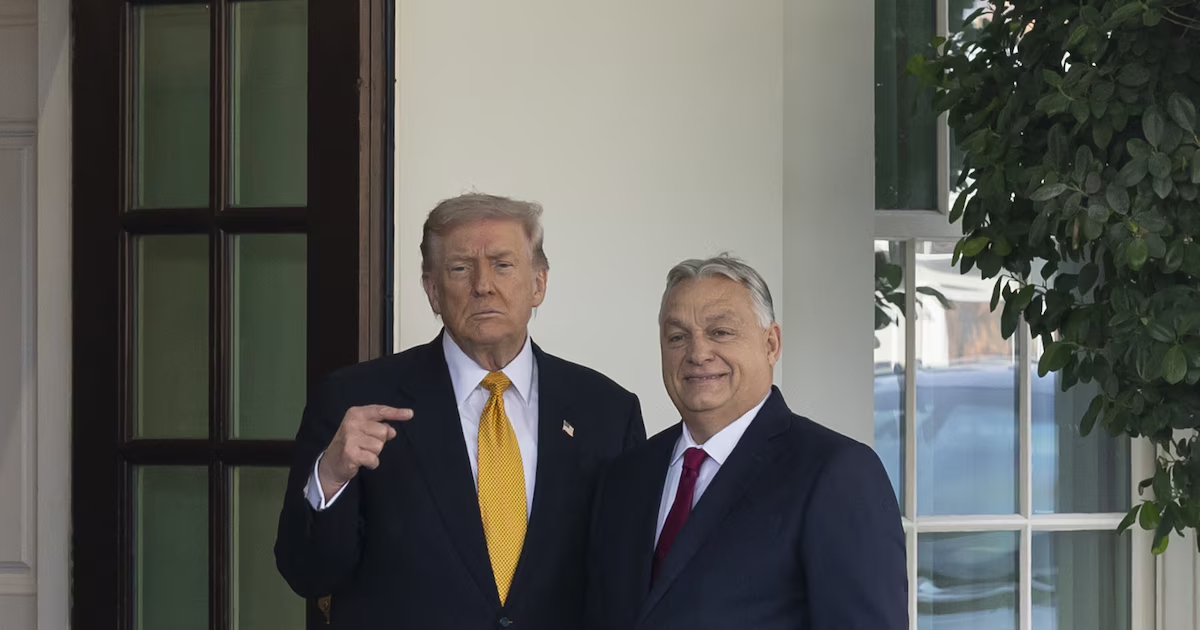
The US State Department this Friday, in the framework of Hungarian Prime Minister Viktor Orbán’s visit to the White House, congratulated the good state and “depth” of bilateral relations between the US and Hungary, which “continue to reach new heights” after strengthening cooperation in key areas such as nuclear energy, defense and trade.
“Under the leadership of President Donald Trump and Prime Minister Viktor Orban, the U.S.-Hungarian relationship continues to reach new heights of cooperation and accomplishments,” the State Department memo said, pointing to the cornerstones of the U.S.-Budapest alliance: “mutual respect for national sovereignty” and “a commitment to advancing strategic objectives that benefit both countries.”
As a result of the talks held this Friday between President Trump and President Orbán, a “new energy alliance” was born between the two countries, materialized by the signing of a memorandum of understanding on nuclear energy, a contract with the US company Westinghouse worth approximately 98.5 million euros for “the supply of US nuclear fuel to the Pakuks I nuclear power plant in Hungary”, and a commitment by the Hungarian side to purchase US liquefied natural gas (LNG).
In the defense field, the two leaders have focused on building a “stronger security alliance.” For this reason, the two countries are proposing to strengthen relations through updating agreements such as the General Security of Military Information Agreement (GSOMIA).
Along the same lines, the parties’ intention to deepen civil and commercial space cooperation and the Hungarian government’s commitment to “obtain $700 million (approximately €605 million) worth of defense materials through foreign military sales” were also expressed.
Among the “key accomplishments” highlighted by the State Department are cooperative agreements to jointly advance advances in science and innovation, particularly facilitating funding and grants for “funding bilateral trips, workshops, and cooperative conferences,” or expanding Fulbright cooperation with “new exchange opportunities for American and Hungarian scholars.”
‘Set the next generation in stone’ These measures are largely made possible by new commitments made on borders and travel, including the full reinstatement of Hungary’s participation in the Visa Waiver Program and American Airlines’ resumption of seasonal direct flights between Philadelphia and Budapest starting in May 2026.
These “achievement and opportunities” were announced after President Donald Trump met with Viktor Orbán at the White House this Friday and signed what the Hungarian government called a “strategic” agreement in the energy sector.
Ahead of the meeting, Hungarian Foreign Minister Péter Szijjártó announced on social networks that the aim of the meeting was to sign a nuclear cooperation agreement and an agreement under which Hungary would continue to obtain energy from Russia “legally and without restrictions.”
Szijjártó himself reported shortly thereafter that the United States had granted Hungary complete and unlimited exemption from oil and gas sanctions. Shortly afterward, Prime Minister Orbán declared that “sanctions on the TurkStream and Friendship gas pipelines will be completely waived,” stressing that the decision would allow Hungary to “continue to offer households the lowest energy prices in Europe.”



